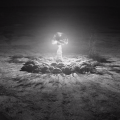Meanwhile back in Israel
Comments
-
It's not the language; it's the tone. Things can easily become heated and this discussion is about conflicts in the Middle East. That's definitely not a topic that fosters peaceful feelings in some. I thank you for your cooperation with this goal and I appreciate everyone following this guidance. I don't enjoy banning members from the forums so be chill with each other, ok? Thanks again.mickeyrat said:HughFreakingDillon said:
really kat ? all he said was "answer the (effing) question". we're censoring swear words now?HughFreakingDillon said:mickeyrat said:mrussel1 said:
Well if it's effective but morally wrong, then isn't that the same argument israel could use?mickeyrat said:illegal evictions on occupied land and police interference(to put it mildly) during important religious functions.so tell me, just what is the acceptable means of protesting this? hmm?rockets seem to be an effective(not right) means of getting due attention over the continued drip drip drip of apartheid.....how do the palestinian people get relief? for ALL OF IT.I've been warned a couple times related to language. guessing she's dialing down the temprature for my benefit.she let the far more important sentence stand. because that IS the fundamental question that desperately needs answered and implemented.Post edited by Kat onFalling down,...not staying down0 -
ok, be honest....who else never knew the Netanyahu lived in Philly during his high school years?Your boos mean nothing to me, for I have seen what makes you cheer0
-
He used to be a talking head, always on CNN about 20 years ago. Seemed he spent alot of time in the states, at least once in this lifetime.HughFreakingDillon said:ok, be honest....who else never knew the Netanyahu lived in Philly during his high school years?0 -
mickeyrat said:HughFreakingDillon said:
so let me pose this.......I understand Israel's military capabilities far out weigh Palestine's, however (and I say this with the belief that Israel is guilty of genocide), if they are attacked, just because they can defend the attack, what should they do? just have a big belly laugh and put up a banner saying "nice try!"?mickeyrat said:
if the US were attacked by North Korea via missile, and the US successfully defended itself, would you not expect the US to obliterate NK in return for the attempt?daily provocations, "poking the caged, hungry lion"this "status quo" is untenable, unsustainable and its immoral.israel is the bully victim. its horseshit. they are just the fucking bully. and my tax dollars help them.
Hamas has been acting like a bully in trying to seize E Jerusalem. Your taxes dollars are probably preventing a far deadlier ground war.
You used the "occupy" word the other day. How does one occupy land that they've lived on continuously 4000 years, thousands of years before Muhammad made his pilgrimage there (to what we now call the west bank)?0 -
I'd like to know how far back we go when it comes to who gets to claim the land.
if it's anything earlier than 1492, I think Canada and the US are going to have some 'splainin' ta do, Lucy.Your boos mean nothing to me, for I have seen what makes you cheer0 -
If I'm not mistaken old mate is referring to occupation with regard to the 67 borders/two state solution. If I am and it's about Herzl, the Balfour declaration and Jewish arrivals post 1917 then you're getting into right to exist/Zionist territory. Which is a whole other can of worms in terms of debate.Stars are suns to other people.
Wellington 1998
London 2007
Brisbane 2009
Stockholm 2012Amsterdam 1 & 2 2014
EV Dublin 2017
Milan 2018
Padova 2018
Boston 2 2018
Auckland 1 & 2 20240 -
HughFreakingDillon said:I'd like to know how far back we go when it comes to who gets to claim the land.
if it's anything earlier than 1492, I think Canada and the US are going to have some 'splainin' ta do, Lucy.people throw around words like occupy, and are not fully aware of the history of the West Bank.Hamas wants to throw the Israelis out of West Bank and E Jerusalem, which was once part of the Kingdom of Israel, but the Israelis are not throwing out the Palestinians. That’s a pretty huge double standard for people using the word occupy.
Israel left Gaza 15 years ago and that turned out to be an absolute disaster.0 -
when your military patrols land not within your borders and serves as law enforcement, thats occupation.thowing around that word. ha. its been used and correctly since 1967_____________________________________SIGNATURE________________________________________________
Not today Sir, Probably not tomorrow.............................................. bayfront arena st. pete '94
you're finally here and I'm a mess................................................... nationwide arena columbus '10
memories like fingerprints are slowly raising.................................... first niagara center buffalo '13
another man ..... moved by sleight of hand...................................... joe louis arena detroit '140 -
TBH Hamas wants to throw the Israelis out of existence. When an organisation has genocide as part of its original charter it's hard to take them seriously and were I Israel I wouldn't trust them as far as I could throw them. It's also frustrating that they were voted into "power" in Gaza. But Hamas and the other terrorists aren't Palestine. Think the double standard is apt if you're referring to Hamas, not Palestine. But the hardliners Netanyahu panders to should be differentiated from Israel also. Everyone knows the two state solution is flawed, especially if you know the history of kingdoms of Judea and Samaria, and obviously the question of how far back ownership is valid rears its head. There may be (though hardly likely I concede I'm not that naive) a consensus that the two state solution is taken off the table in future but to do it unilaterally with all its implications no matter how gradual is obviously one of the things that has the international community most up in arms.Lerxst1992 said:HughFreakingDillon said:I'd like to know how far back we go when it comes to who gets to claim the land.
if it's anything earlier than 1492, I think Canada and the US are going to have some 'splainin' ta do, Lucy.people throw around words like occupy, and are not fully aware of the history of the West Bank.Hamas wants to throw the Israelis out of West Bank and E Jerusalem, which was once part of the Kingdom of Israel, but the Israelis are not throwing out the Palestinians. That’s a pretty huge double standard for people using the word occupy.
Israel left Gaza 15 years ago and that turned out to be an absolute disaster.
No coincidence Israel has the most effective vaccination plan at present. That's a form of defence in itself.
Stars are suns to other people.
Wellington 1998
London 2007
Brisbane 2009
Stockholm 2012Amsterdam 1 & 2 2014
EV Dublin 2017
Milan 2018
Padova 2018
Boston 2 2018
Auckland 1 & 2 20240 -
And when was this "Kingdom of Israel"?Lerxst1992 said:Hamas wants to throw the Israelis out of West Bank and E Jerusalem, which was once part of the Kingdom of Israel, but the Israelis are not throwing out the Palestinians. That’s a pretty huge double standard for people using the word occupy.
"Mostly I think that people react sensitively because they know you’ve got a point"0 -
any number of "kingdoms throughout historyPost edited by mickeyrat on_____________________________________SIGNATURE________________________________________________
Not today Sir, Probably not tomorrow.............................................. bayfront arena st. pete '94
you're finally here and I'm a mess................................................... nationwide arena columbus '10
memories like fingerprints are slowly raising.................................... first niagara center buffalo '13
another man ..... moved by sleight of hand...................................... joe louis arena detroit '140 -
Im watching his next press conference. I want to see if this dude drops any jawns.HughFreakingDillon said:ok, be honest....who else never knew the Netanyahu lived in Philly during his high school years?0 -
He just drops bombs now. There's ethnic cleansing to be done, dontcha know?cp3iverson said:
Im watching his next press conference. I want to see if this dude drops any jawns.HughFreakingDillon said:ok, be honest....who else never knew the Netanyahu lived in Philly during his high school years?
He was probably good buddies with Phrank Rizzo.I SAW PEARL JAM0 -
The real Frank Rizzo or the Jerky Boy?dankind said:
He just drops bombs now. There's ethnic cleansing to be done, dontcha know?cp3iverson said:
Im watching his next press conference. I want to see if this dude drops any jawns.HughFreakingDillon said:ok, be honest....who else never knew the Netanyahu lived in Philly during his high school years?
He was probably good buddies with Phrank Rizzo.0 -
They are close to cease fire…could happen Friday…so maybe they have a day or 2 of peacefulness
Give Peas A Chance…0 -
Spiritual_Chaos said:
And when was this "Kingdom of Israel"?Lerxst1992 said:Hamas wants to throw the Israelis out of West Bank and E Jerusalem, which was once part of the Kingdom of Israel, but the Israelis are not throwing out the Palestinians. That’s a pretty huge double standard for people using the word occupy.They never left the West Bank, did they?0 -
_____________________________________SIGNATURE________________________________________________
Not today Sir, Probably not tomorrow.............................................. bayfront arena st. pete '94
you're finally here and I'm a mess................................................... nationwide arena columbus '10
memories like fingerprints are slowly raising.................................... first niagara center buffalo '13
another man ..... moved by sleight of hand...................................... joe louis arena detroit '140 -
If he wasn't Jewish he would have been crucified for saying this.mickeyrat said:0 -
Bernie really knows how to extend this cease fire into lasting peace, just like he knows how to flip swing and red house seats to his cause, instead of losing 15 seats since AOC became a household name.0
-
The truce quieted Israeli-Palestinian hostilities — but not the Jerusalem disputes that triggered them
By Loveday Morris
May 24 at 2:22 PM ET
JERUSALEM — Leading a group of Jews onto the Temple Mount for the first time in three weeks, Tom Nisani shrugged off the sensitivities of Palestinian worshipers at the contested site.
“If it makes them sensitive, it’s not my fault,” Nisani, 32, who heads an organization that aims to bring the holy site under direct Israeli control, said moments before Israeli police on Sunday escorted him around the compound known by Muslims as the Noble Sanctuary.
While Israeli police called the appearance of right-wing Jews at the holy site routine, Palestinians called it provocative. And the Islamic Waqf, or endowments agency, which is responsible for running the site, later said three of its workers were detained after “radicalized settlers” were allowed entry. An image of a Waqf worker restrained on ground, with an Israeli police officer’s knee on his neck, quickly went viral on social media.
This was just one incident in what have become almost daily confrontations in East Jerusalem, even after a cease-fire was reached last week to end the fighting between Israel and Hamas. These tensions largely center on two flash points — the sacred compound that includes al-Aqsa Mosque and the planned eviction of Palestinian families from the Sheikh Jarrah neighborhood — and are the very same ones that triggered the devastating exchange of rockets and airstrikes this month.
In more violence Monday, two Israelis were stabbed in East Jerusalem, requiring hospitalization. The Israeli military said one was a soldier, who was moderately injured. The attacker was fatally shot.
The simmering tensions come as U.S. Secretary of State Antony Blinken is scheduled to touch down in Israel for a visit this week to talk with Israeli officials and Palestinian leaders in the occupied West Bank. But there is little sign that this diplomatic initiative will resolve the underlying issues, like those in Jerusalem, that continue to fuel Israeli-Palestinian hostilities.
“Maybe it will calm down for one month or two months,” said Sheikh Omar al-Kiswani, the manager of al-Aqsa Mosque, after Sunday’s arrests. “But in the end, it will all explode on the street.”
Kiswani said Muslim worshipers had been cleared from the holy site on Sunday after morning prayers amid “provocations” by Israeli forces.
An Israeli police spokesman confirmed that Waqf employees had been arrested but said he did not have details except that they had created a disturbance. While Nisani’s tour along the edges of the compound passed uneventfully, another that morning had been heckled, video showed.
The outbreak of fighting between Israel and Hamas had been preceded by weeks of growing friction in Jerusalem, which built over the Muslim holy month of Ramadan. In the final days, Israeli security forces confronted Muslim worshipers in what Palestinians called a raid on al-Aqsa Mosque, the third-holiest site in Islam. That Israeli action was condemned by Jordan, which runs the Waqf that controls the site, as a breach of the delicate status quo agreement in place since Israel captured East Jerusalem in the 1967 war.
When Hamas launched its first rockets toward Jerusalem this month, the militant group dubbed its barrage the “Sword of Jerusalem.” Hamas opened fire after issuing an ultimatum for Israeli forces to withdraw from around the mosque and ensure the rights of Palestinians facing eviction in Sheikh Jarrah. Israel responded with intense airstrikes on the Gaza Strip.
The 11 days of fighting killed 248 Palestinians and 12 people in Israeli, officials said.
[For Palestinians and Israelis, war means inventing ways to protect children, ease their trauma]
Protests are also continuing in the Sheikh Jarrah neighborhood, where the efforts by Jewish settlers to evict Palestinian families have taken on symbolic importance for many opponents of Israeli occupation. The Israeli Supreme Court had been poised to oust several families after a lengthy court battle but delayed the hearing as violence was erupting this month.
Today, police cordons limit the access of Palestinians to the mostly Arab area but allow Jewish settlers to come and go.
“It’s no good to fix it with a plaster,” said Sirien Jabareen, a Palestinian activist who had traveled from the town of Umm al-Fahm in northern Israel to show her support for the families.
“The problem is the Israeli apartheid system,” she said after Israeli police dispersed the peaceful demonstrators by spraying a foul smelling fluid known as skunk water. “You’ve got to get to the root.”
In response to questions about the handling of tensions in the city, Israeli police said they had acted with “increased force” on the streets of Jerusalem to “prevent incidents of violence” and “preserve public security.”
Tareq Baconi, an analyst at International Crisis Group, said the relentless confrontations in Jerusalem are unlikely to end peacefully. “There have been mass arrest of Palestinian protesters. Sheikh Jarrah has been put under siege,” he said. “I think this is likely to continue, and it’s likely to continue with greater violence by Israeli security forces if the media isn’t looking.”
Recent days have seen a new sense of unity among Palestinian protesters as they confront Israel in the streets, but frictions are growing within the Palestinian establishment between rival camps.
On Friday, Muslim worshipers turned on the grand mufti of Jerusalem because he did not mention the situation in Gaza or Hamas’s military efforts during the prayer service at al-Aqsa. The grand mufti is appointed by the Palestinian Authority, which governs in the West Bank and competes with Hamas for popular support.
“Out, out, the dogs of the [Palestinian Authority] out,” worshipers chanted, video of the scene showed. Some threw items at him as he took refuge at the top of his minbar, the pulpit where sermons are delivered.
On the esplanade outside the mosque, large crowds gathered, waving mainly Palestinian flags but also some Hamas ones, ABC producer Nasser Attar said. “I think the Israelis got irritated,” he said. “All of a sudden we heard sound grenades.”
Attar said he was beaten by Israeli police despite showing a press card. He said the crowd had been peaceful until Israeli police tried to disperse it, but later a molotov cocktail was thrown toward Israeli officers.
Leaving prayers on Sunday, Mohammed Obaidat, 59, said the show of support for Hamas was understandable. “People will rally around whoever comes to rescue them,” he said. “The people of Jerusalem suffer from fines, arrests, the confiscation and destruction of their houses.”
As he spoke, Israeli police led away a young Palestinian in handcuffs from the site.
Marlen Lluz, 48, a mother of two from East Jerusalem, recently stood beside a deserted Damascus Gate, one of the main entrances to Jerusalem’s Old City, holding a tissue to her nose to block the smell of the skunk water. Her 25-year-old son had also recently been detained by Israeli forces.
“They aren’t giving anyone a chance to breathe,” she said. “It will get worse if they don’t address the demands of the Palestinian people.”
Miriam Berger and Sufian Taha contributed to this report.
_____________________________________SIGNATURE________________________________________________
Not today Sir, Probably not tomorrow.............................................. bayfront arena st. pete '94
you're finally here and I'm a mess................................................... nationwide arena columbus '10
memories like fingerprints are slowly raising.................................... first niagara center buffalo '13
another man ..... moved by sleight of hand...................................... joe louis arena detroit '140
This discussion has been closed.
Categories
- All Categories
- 149.2K Pearl Jam's Music and Activism
- 110.3K The Porch
- 285 Vitalogy
- 35.1K Given To Fly (live)
- 3.5K Words and Music...Communication
- 39.4K Flea Market
- 39.4K Lost Dogs
- 58.7K Not Pearl Jam's Music
- 10.6K Musicians and Gearheads
- 29.1K Other Music
- 17.8K Poetry, Prose, Music & Art
- 1.1K The Art Wall
- 56.8K Non-Pearl Jam Discussion
- 22.2K A Moving Train
- 31.7K All Encompassing Trip
- 2.9K Technical Stuff and Help



 https://youtu.be/Vg1UDYvnivM
https://youtu.be/Vg1UDYvnivM




